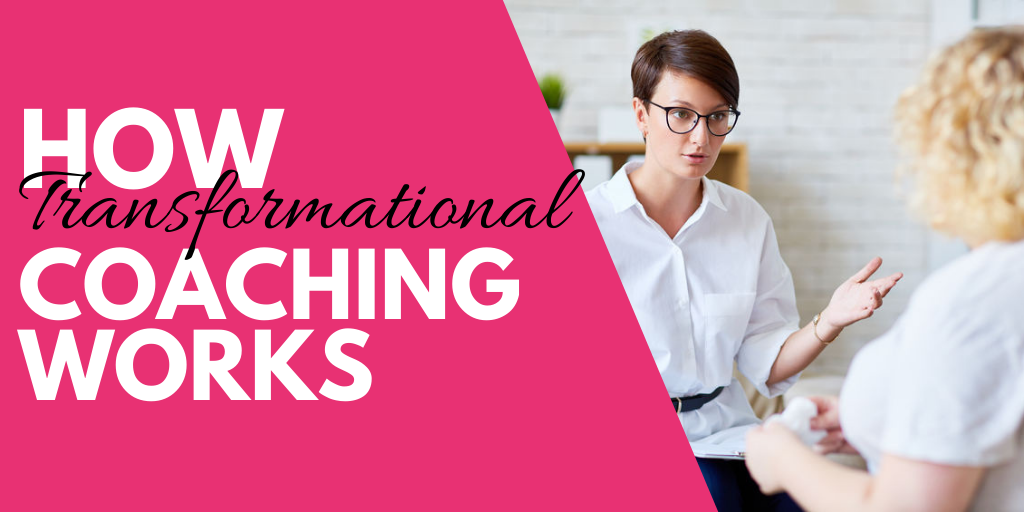How Transformational Coaching Works
Transformational coaching goes beyond the surface of working with clients and works with clients from the inside-out.
In this post, I will share with you the process of how transformational coaching works.
How Transformational Coaching Works
When clients come for coaching, they often have a goal they want to accomplish or a problem they want to solve. They need help getting from their current situation to their ideal outcome.
With that, there are tasks they need to do to get there. Some of the tasks involve things they are not doing and need to start doing or things they cannot do for some reason. We can categorize this into weaknesses that are stopping them from moving forward.
Then, some of the tasks may be things they are already doing or know how to do, and we can categorize these into strengths they can utilize to move them forward.
Solution-Focused Coaching Model
In transformational coaching, we can start with their strengths and what they already know. Various studies have shown that when we focus on developing our strengths, we grow faster than improving our weaknesses. Plus, people who use their strengths are happier, less stressed, and more confident. This is where we utilize the solution-focused coaching model.
In solution-focused, we start from the platform (the problem) and build the platform by discovering their ideal outcome using the miracle question. Then, we look for counters or things that count and ask them, “on a scale from zero to 10, where are you on the scale?” Next, we discover what they already have working for them and how they got there—in other words, finding their available resources. Then, we summarize and affirm all they have going for them. This includes all counters and possible solutions. Lastly, we help them take action based on their available resources.
Solution-Focused coaching primarily works from a surface level.
Continue reading or watch the “How Transformational Coaching Works” video below.
Working with Mental and Emotional Blocks in Transformational Coaching
Most times, when someone hires a coach, they do so because they have tried so many times to resolve their problems, but blocks get in the way of them reaching their goals. These blocks are their thoughts, emotions, and behaviors.
Their thoughts affect their emotions. Their emotions affect how they respond or don’t respond to a given situation, problem, or goal.
This is where transformational coaching comes in.
When looking at our client’s thoughts, we have to pay attention to their
- automatic thoughts
- intermediate beliefs
- core beliefs
To help our clients understand their thought process, we need to help them understand the underlying beliefs that are holding them back.
In this process, we use and teach our clients the cognitive-behavioral approach, cognitive behavioral therapy.
Cognitive-Behavioral Coaching
Cognitive-behavioral therapy is based on the idea that the way an individual thinks and feels, affects how he or she behaves. The goal is to change clients’ thought patterns in order to change their responses to challenging situations. We work with clients from the inside-out, and this is where the transformational coaching results start to go into effect.
Working with Behavioral Blocks in Transformational Coaching
Another thing that may get in the way of a client not achieving a goal, or resolving a problem, or getting to their ideal outcome is a behavior that they don’t accept as a “problem” behavior. When a person has a behavior they don’t accept as a “problem” behavior, it can be hard for them to reach their ideal or positive outcome.
In the stages of change – transtheoretical model, this person would be in the pre-contemplation stage for that “said” behavior.
Resistance to Change
There are also times when coaches have to coach clients who do not want to be coached. This mostly occurs when coaching in business environments. This may also occur when a client comes to coaching because of a family member or friend. During these times, the client does not want to be coached because they do not believe they have a problem behavior. These clients are also in the pre-contemplation stage.
Motivational Interviewing for Transformation
When clients are in the pre-contemplation stage, we can use motivational interviewing. Motivational interviewing is key in transformational coaching. Motivational interviewing is a collaborative, goal-oriented style of communication with particular attention to the language of change. Motivational interviewing is a method that helps people resolve ambivalent feelings and insecurities to find the internal motivation they need to change their behavior. We use motivational interviewing to strengthen a person’s motivation and commitment to change.
In working with people in the pre-contemplation stage, coaches must promote autonomy by encouraging clients to take the lead in developing a menu of options as to how to achieve the desired change. Coaches must also promote collaboration by ensuring mutual understanding and not just saying that the coach is right. We must also promote evocation to draw out the person’s motivations and skills for change rather than imposing our ideas. When coaching, it is imperative to roll with resistance, express empathy, develop discrepancy, and support self-efficacy. And we do this by using coaching skills such as open-ended questions, affirmations, reflective listening, and summarizing.
In motivational interviewing, the coach uses transformational coaching skills. The coach seeks to guide the clients to expressions of change talk as the pathway to change. The more the clients talk about change, the more likely they are to change, so we guide and listen for a desire to change. Change talk is when awareness has been created. At this point, coaches should continue to guide and listen for the ability to change, a reason to change, and the need to change. Once the client reaches the need to change, he or she will then commit to change; the client will activate change and take actions necessary.
Using Positive Psychology for Transformation
Most of what I discussed in this post works with clients who need help with specific issues. What happens when we have to work with clients who are conflicted, overwhelmed, or needs help with many different areas of their lives? What happens when someone is looking for a complete life transformation? When the client is not living authentically or feels like she’s not aligned or not living a meaningful life? What happens when a client feels like she is suffering from work-life balance issues, lacks motivation, or feels like she is all over the place? These clients feel like they need more clarity and want to be happier in life.
Values
As coaches, we can use positive psychology coaching for transformation. In positive psychology coaching, we create a snapshot of every area of the client’s life and help them decide where to start first. We then help the clients to discover or realize their values. What do they value? When they work from their values, they begin to live more authentically and live a valued life. They are not just setting goals, but they are setting goals with meaning and value. Goal-setting based on values is a tool that can be used in all coaching areas to ensure the goals make sense.
Character Strengths
In positive psychology coaching, we also help clients work from their character strengths. Character strengths are the positive parts of a person’s personality and traits that impact how they think, feel, and behave. Applying your highest character strengths is the key to you being your best self. Character strengths are different from personal strengths, such as your unique skills, talents, interests, and resources. Character Strengths reflect the real you, who you are at your core. If we want to help our clients increase their overall wellbeing, get greater meaning, purpose, and satisfaction in their lives, we need to help them play to their character strengths. We also need to help them understand and commit to living more according to their values.
Transformational coaching results will not be as effective without the use of values and character strengths.
Unlike character strengths and values, our personality, talents, and skills don’t always evoke feelings of energy, joy, or authenticity. Focusing on values and character strengths are vitally important to wellbeing and a sense of being our best self. By building goals on these foundations, we can help our clients flourish and thrive in life and bring their unique contributions to the world.
Positive psychology also increases happiness, discovering passion, dealing with low self-esteem and low self-worth.
Using Motivational Coaching to Assist with Transformation
The most important part of transformational coaching is to ensure we give our clients tools to succeed, not just in coaching but even after the coaching ends. That is the ultimate goal of transformational coaching.
One way of doing this is to ensure that whatever our clients are working on, they can remain motivated. Their motivation must be absolutely compelling in order to overcome the obstacles that will inevitably come their way. Motivation can be intrinsic or extrinsic. There’s no hardcore way to determine which type of motivation is best for one particular client. This answer all depends on where the client is in their journey.
To get the answer to their motivation, we have to discover their “why.” We do this through various techniques, such as the miracle question. Once we find out their “why,” we discover the reward they are after, and we discover what motivates them.
Using Mindfulness in Transformational Coaching
Another way to ensure our clients succeed after coaching is to give them the tool of mindfulness. To ensure our clients live a valued life and play to their character strengths and to assure our clients remain aware of:
- when and why they are falling off track
- when they are not living in line with themselves
- what is keeping them stuck
- the blocks, the thoughts, emotions, behaviors, that hinder them
- when they should focus on the solution and not the problem
- when they are in the pre-contemplation stage
- when they are making great progress
- when they need to tweak something
…they have to be MINDFUL.
If someone is not mindful or not aware of how they move in life, they will always find themselves stuck and needing a coach.
Take-Home Message
When clients are able to change their mindset, change their behaviors, achieve their goals, live in line with their values, play to their character strengths, remain motivated, and remain mindful is when the true transformation will be made.
This is how transformational coaching works!
Learn more about Transformational Coaching Techniques.
Learn more about how to become a transformational coach.



